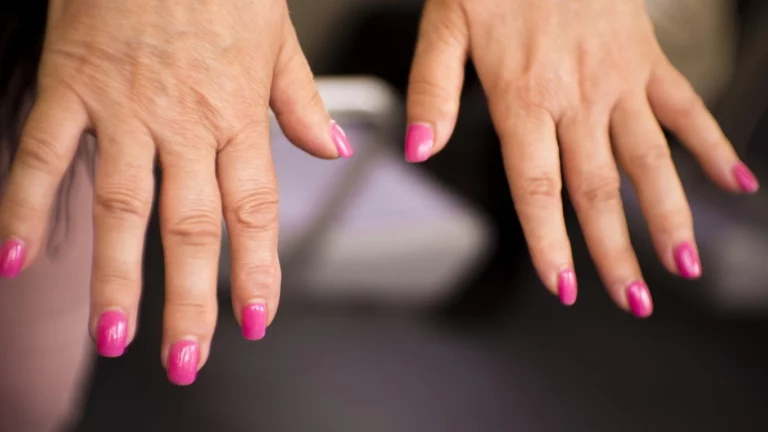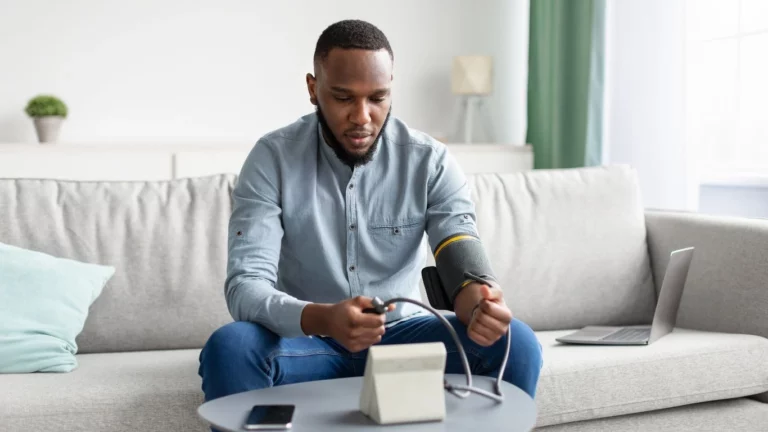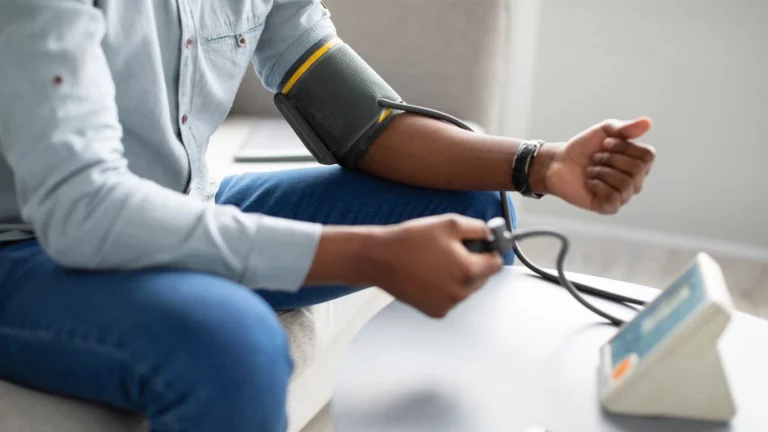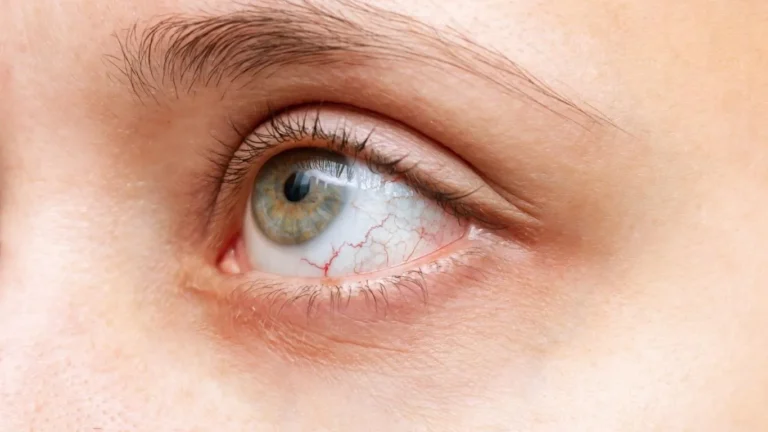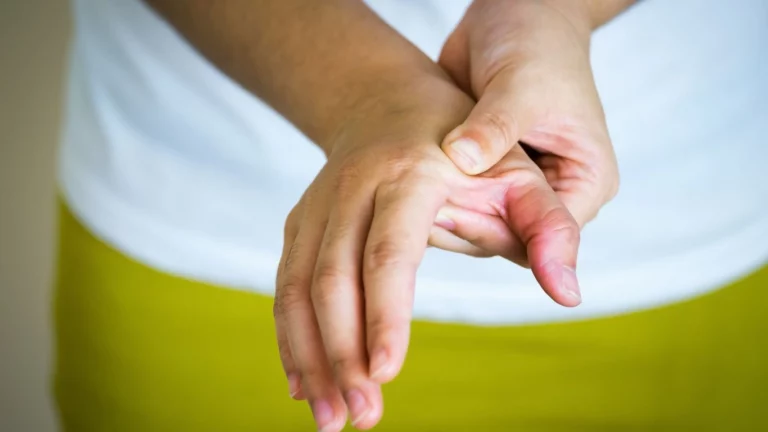Can Screen Time Increase Blood Pressure? Shocking Truth Revealed
As an Internal Medicine physician who’s spent years helping patients manage high blood pressure, I’ve been asked just about every lifestyle-related question under the sun. But one that’s coming up more and more lately is this: Can screen time increase blood pressure? It’s a great question—especially as our lives become more intertwined with smartphones, tablets, and laptops. I mean, we all scroll through social media or answer emails from the couch, often without realizing we’ve been sitting for hours. And honestly? I’ve noticed some patterns in my clinic that suggest this isn’t just harmless habit.
What We Know So Far About Screen Time and Blood Pressure
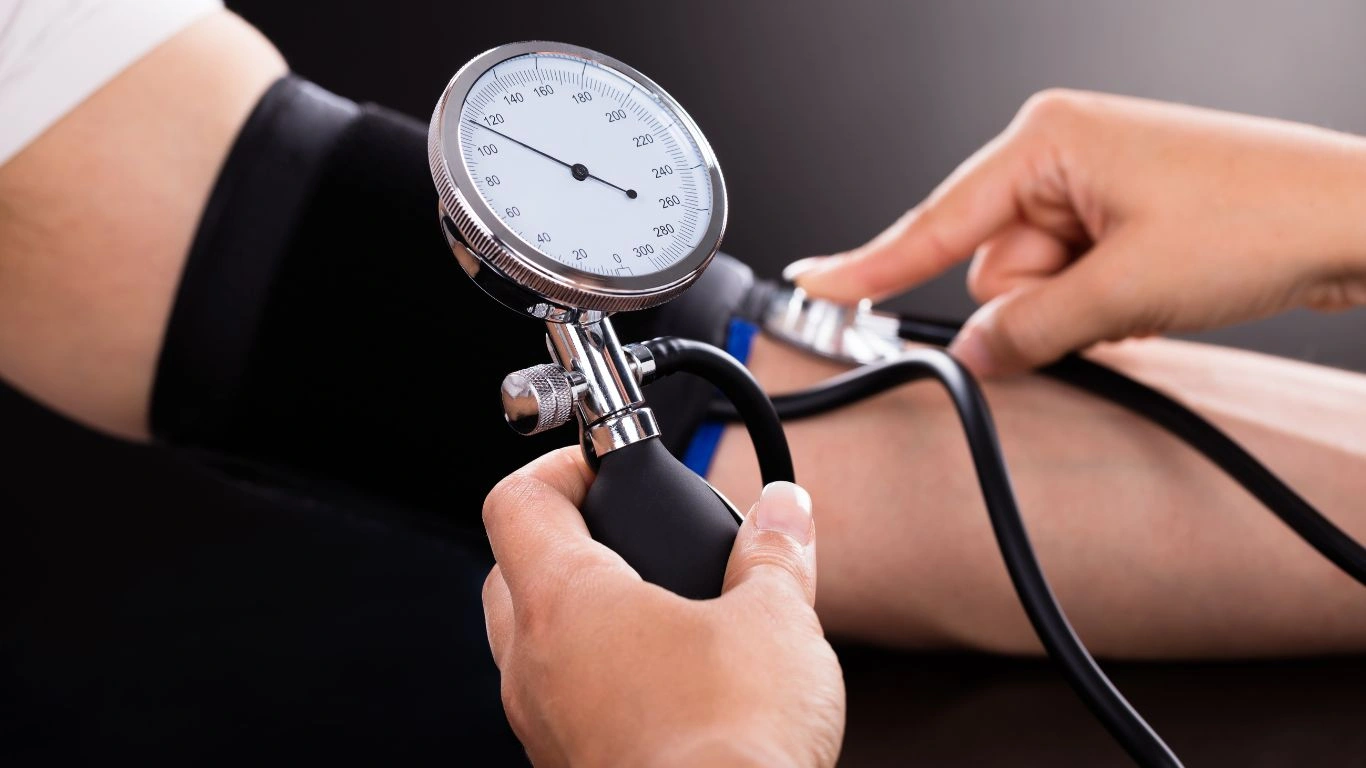
First off, let’s talk about the basics. Blood pressure is influenced by a number of factors—genetics, diet, exercise, sleep, stress, and yep, even how long you sit staring at a screen. While there’s still a lot of research being done on the specifics, there’s growing evidence that excessive screen time may contribute to elevated blood pressure, especially in kids and adults who already have risk factors.
From my clinical experience, it’s not just about the screens themselves—it’s the habits that come with them. Sitting for extended periods, mindless snacking, disrupted sleep patterns, and the constant low-level stress from work notifications or doomscrolling all play a role. I’ve had patients with previously stable hypertension suddenly creep into higher ranges, and the common denominator was often a change in lifestyle—more screen time, less movement.
The Vicious Cycle: Sitting, Snacking, and Stress
Let me paint a familiar picture. You sit down to watch just one episode of your favorite show. Before you know it, you’re three hours in, you’ve demolished a bag of chips, and you’re too tired to do anything but crash in bed. Sound familiar? This combo of sedentary behavior and poor eating choices can spike your blood pressure—especially if it becomes a regular pattern.
Here’s what tends to happen physiologically:
- Physical inactivity: Prolonged sitting reduces blood circulation, slows metabolism, and contributes to weight gain—all of which are red flags for hypertension.
- Poor diet during screen time: People often reach for salty, high-carb snacks when distracted by a screen, leading to excess sodium and calorie intake.
- Increased stress levels: Constant notifications, emails, and social media feeds can keep your body in a low-grade fight-or-flight mode. Elevated cortisol? Yep, that can increase your blood pressure, too.
How Much Screen Time Is Too Much?
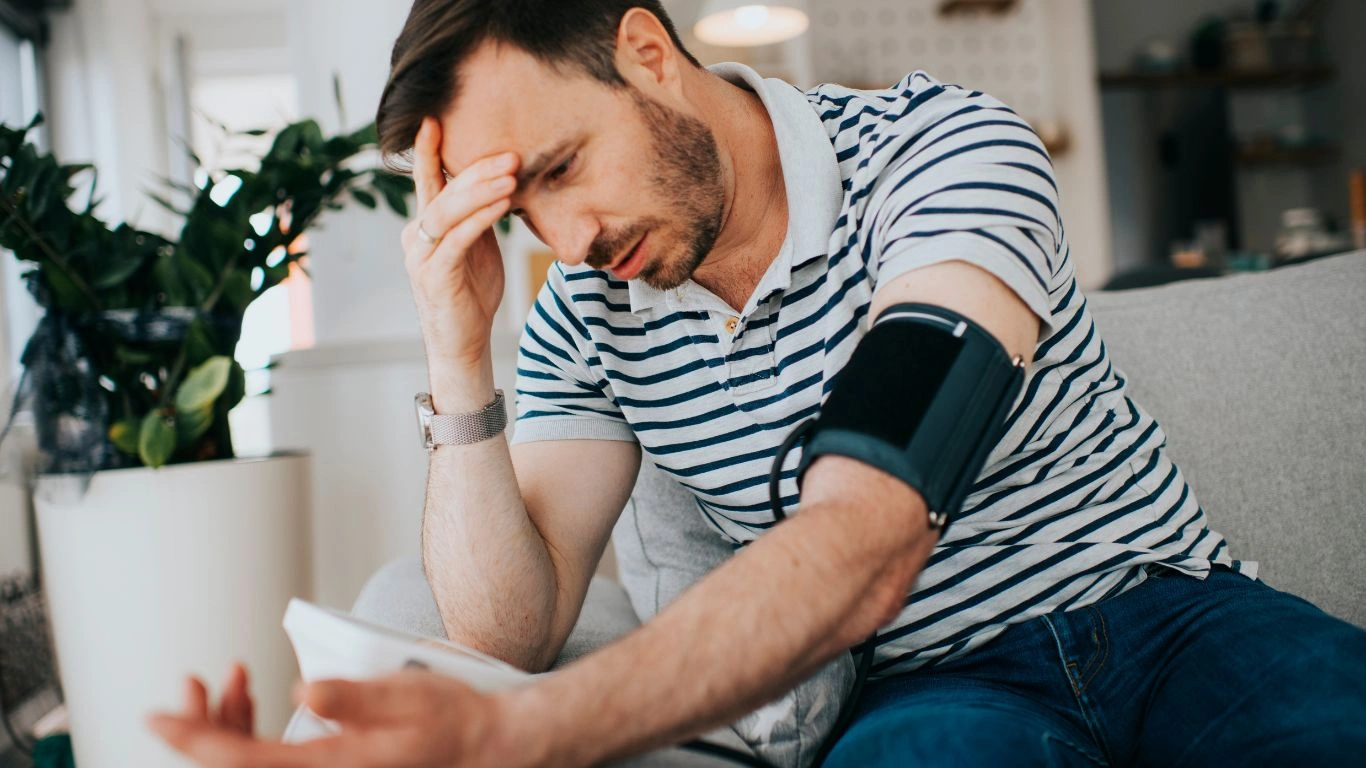
This is where things get interesting. There’s no magical number that works for everyone, but research suggests that more than 2 hours of recreational screen time per day may be associated with increased risk of hypertension—especially among kids and teens. But let’s be real: many adults easily double or triple that amount without blinking an eye.
In my practice, I’ve started asking patients about their screen habits just like I ask about their diet or exercise. You’d be surprised how often someone says, “Oh, I work on the computer all day, then scroll TikTok for an hour or two before bed.” That’s easily 10+ hours of screen exposure daily. And when those same patients also complain about rising blood pressure numbers, sleep issues, or low energy—well, the connection starts to become clear.
It’s Not Just the Hours—It’s the Timing
One sneaky way screen time can impact your blood pressure is through its effect on sleep. Blue light exposure, especially late at night, disrupts melatonin production and delays your circadian rhythm. Poor sleep? That’s another direct contributor to elevated blood pressure.
I had one patient—let’s call him Mark—a mid-40s tech consultant who had always managed his mild hypertension well with lifestyle changes. But over the past year, his numbers started creeping up again. We reviewed his routine and realized he was working late into the night on his laptop, then falling asleep with the TV on. After cutting back on evening screen exposure and establishing a better wind-down routine, his BP numbers started trending back down within a month.
Is All Screen Time Created Equal?
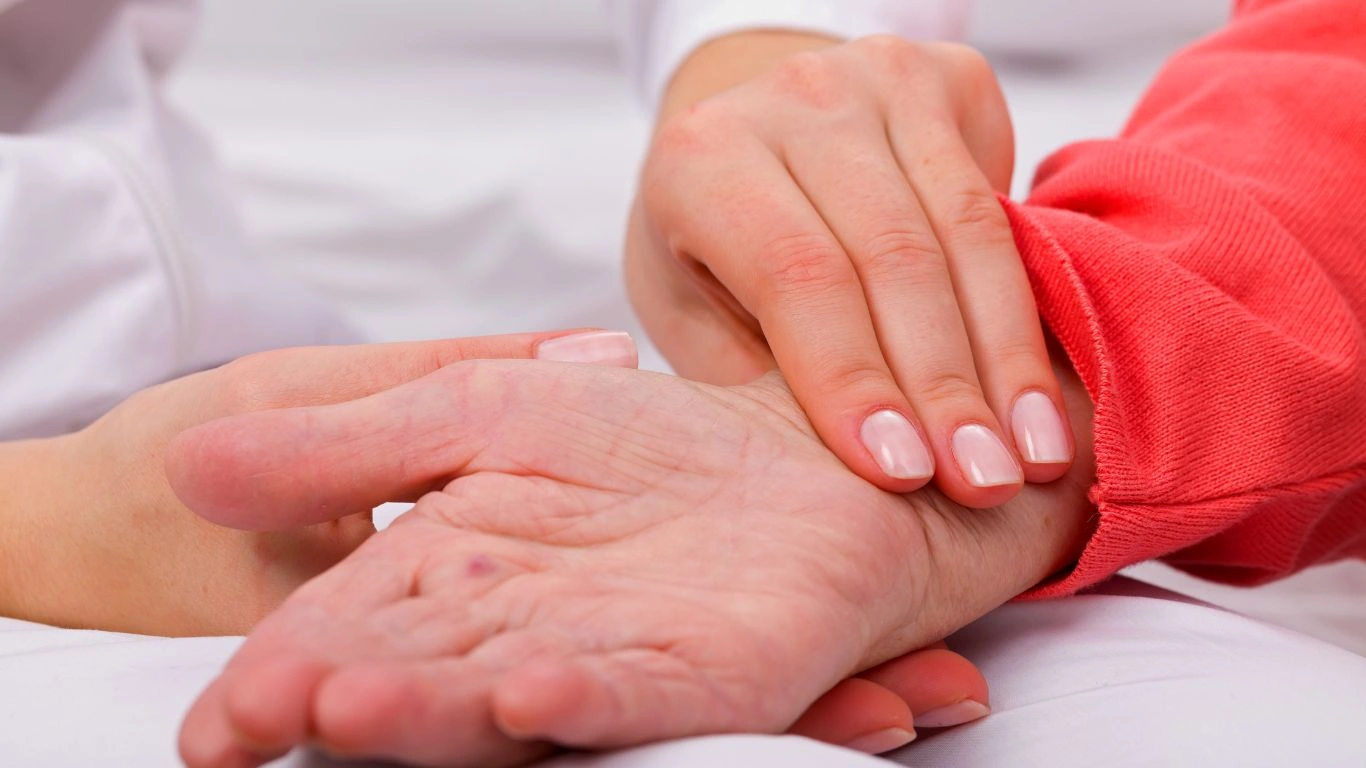
Good question—and no, not all screen time is equally bad for your blood pressure. There’s a difference between doomscrolling on social media for hours versus using your screen to follow a 30-minute guided yoga session. One keeps you sedentary and emotionally taxed, the other can actually support your mental and physical health.
The key is intention. I always tell patients: ask yourself what the screen is doing for you. Are you learning something, moving your body, connecting meaningfully with others—or are you zoning out and stress-scrolling because you’re overwhelmed?
- Active screen time: Includes movement, creativity, or mindfulness (like exercise videos, meditation apps, or educational content).
- Passive screen time: Includes watching TV, scrolling endlessly, or gaming for hours without breaks. This kind has more negative effects, especially if it becomes your default downtime.
Bringing mindfulness to how—and when—you use screens can make a big difference. It’s not about demonizing technology. It’s about balance and awareness. And honestly, most people aren’t even aware how much time they’re spending glued to a screen until they track it.
Why Younger Generations May Be at Greater Risk
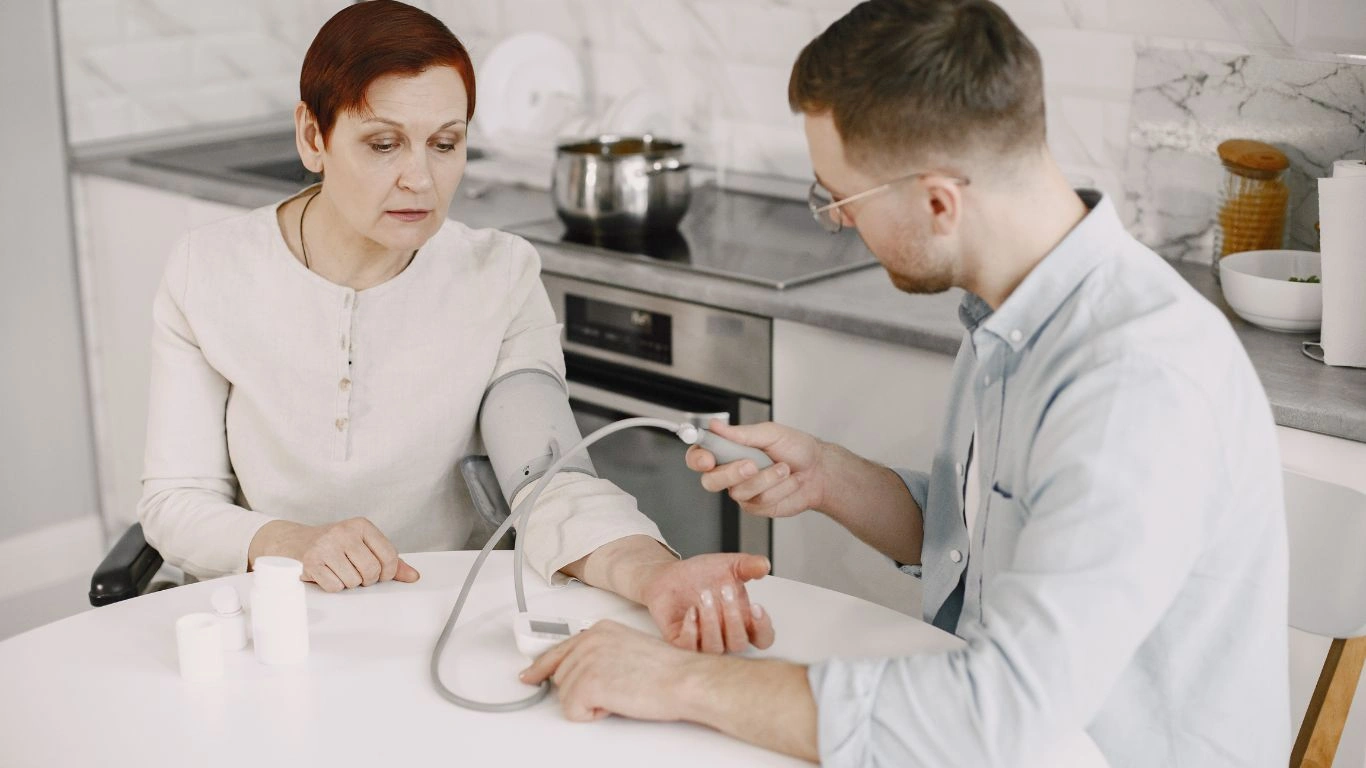
One thing I’ve been noticing more in my clinic is how this issue is affecting younger adults and teens. As someone who’s treated hypertension across all age groups, I never used to talk about blood pressure management with 20-somethings unless there was a clear medical history. But lately? I’ve seen otherwise healthy young people—no family history, not overweight, not smokers—show up with borderline or even stage 1 hypertension. And guess what often comes up in the lifestyle discussion? You got it: heavy screen use.
Now I’m not just talking about scrolling TikTok or bingeing Netflix. A lot of them are studying, working remotely, or gaming for hours. While the intention might be different, the end result is the same: long stretches of sitting, irregular sleep, and barely any real movement. Not to mention the creeping anxiety that comes with constant comparison, notifications, or being “always on.” It’s a perfect storm for rising blood pressure—sometimes earlier than we ever expected to see it.
The Emotional Toll of Digital Life
This is where things get really interesting—and more personal. I had a patient recently, a high-performing college student in her early 20s, who came in for headaches and fatigue. When I checked her vitals, her blood pressure was hovering around 140/90. Not sky-high, but definitely not where it should be for someone her age.
We dug into her routine and it turned out she was juggling online classes, side gigs, and spending hours on social media trying to “stay connected.” But underneath it all, she was anxious, overstimulated, and barely sleeping. Once we added in mindfulness practices, cut her screen use by a couple hours in the evening, and got her moving again—even just walking—her symptoms improved. Her BP followed shortly after.
Can screen time increase blood pressure? In cases like hers, I’d say yes—indirectly but significantly. Especially when it disrupts mental health and healthy routines.
How Stress from Screen Time Affects the Body

Let’s talk physiology for a second. When we’re constantly exposed to screen-induced stress—think: doomscrolling, work pressure, urgent emails—our body reacts just as it would to any other threat. Adrenaline surges, the sympathetic nervous system kicks in, and your blood vessels constrict. Your heart rate and blood pressure climb as a result.
Now imagine doing that multiple times a day, every day. Even low-grade stress can chip away at your cardiovascular health. And the worst part? Most people don’t even realize how wound up they are until they try to unplug. When I recommend “screen-free Sundays” to patients, some of them panic—literally. That dependence on stimulation becomes a silent contributor to chronic stress and, eventually, hypertension.
Sleep and Circadian Rhythm Disruption
We touched on this earlier, but it deserves its own spotlight. Screen time—especially in the evening—throws off your internal clock. Blue light suppresses melatonin, making it harder to fall asleep. And when you’re sleep-deprived, your blood pressure doesn’t dip at night like it’s supposed to. That “non-dipping” pattern is actually a known risk factor for heart disease and stroke.
In clinical practice, I often see patients with stubborn blood pressure who also struggle with sleep. When we tackle screen use—by limiting evening exposure, using blue light filters, or swapping Netflix with a book—the improvements can be surprising.
Simple Screen-Time Tweaks That Help Protect Your Heart
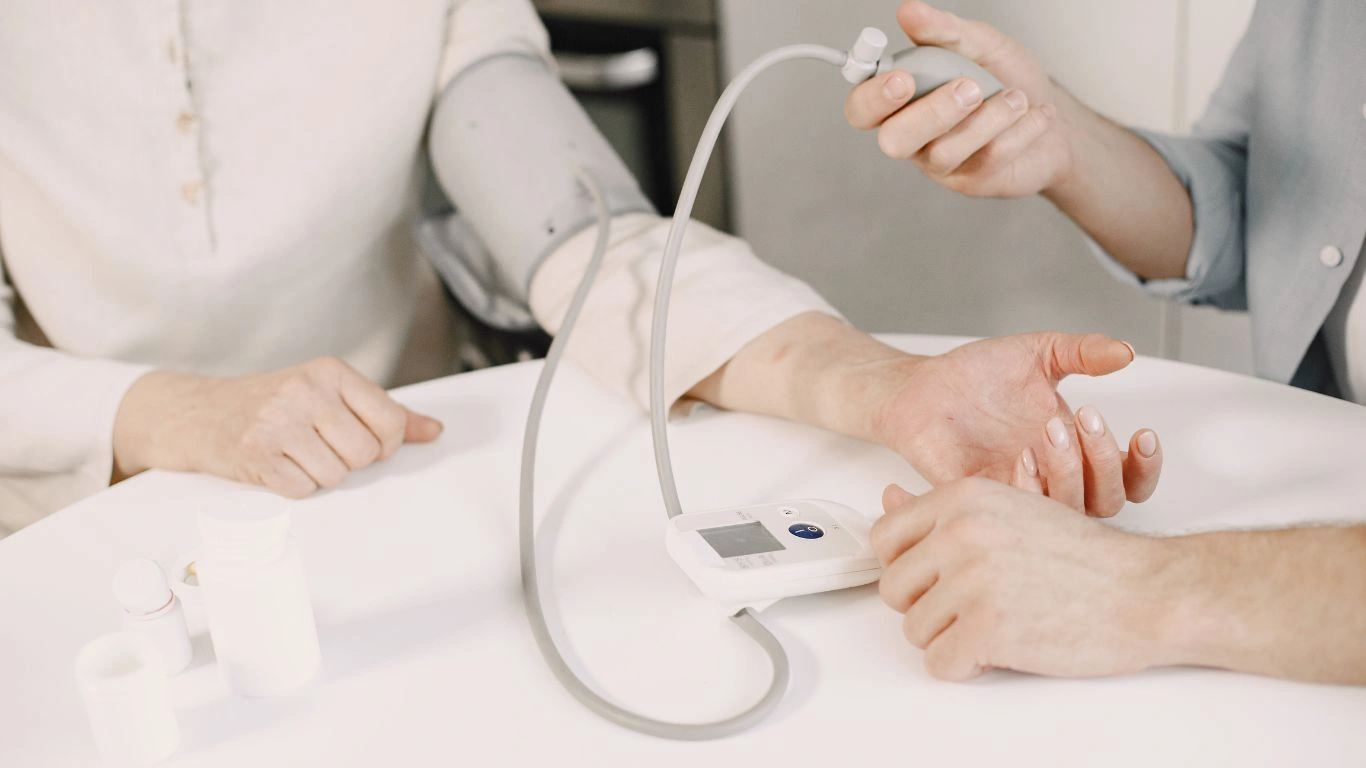
If you’re wondering how to strike a healthier balance without ditching your phone altogether (because let’s be honest, that’s not happening), here are a few practical strategies I often recommend to patients—and use myself:
- Set “movement alarms”: Every 45 minutes, get up and stretch, walk around, or even do a few squats. It keeps circulation going and resets your posture and focus.
- Use screen time tracking apps: Awareness is everything. Once you see how much time you’re actually spending online, you’re more likely to make small changes.
- Prioritize analog breaks: Whether it’s reading a physical book, journaling, or stepping outside without your phone—these moments allow your nervous system to downshift.
- Designate screen-free zones: Keep screens out of the bedroom and dining area. Your sleep (and relationships) will thank you.
- Wind down with intention: Create a pre-bed routine that doesn’t involve screens—stretching, meditation, herbal tea, or good old-fashioned conversation.
What I Tell My Patients—And Try to Practice Myself
Look, I’m not here to say that all screen time is evil. That’d be a little hypocritical—after all, I use screens all day too. But I’ve learned to be more intentional about how I use them. I no longer check emails first thing in the morning. I’ve set a screen curfew (yep, like I’m my own parent). And I’ve started doing walking meetings instead of Zoom calls when possible.
When patients ask me, “Can screen time increase blood pressure?” I tell them: not directly, like salt or smoking might. But the behaviors it promotes absolutely can. It’s not the screen—it’s the lifestyle that often comes with it. And that’s where the real impact shows up.
So if your BP’s creeping up and you’re already eating decently and staying active, it might be time to take a hard look at how much time you’re spending with your screens—and how that time is making you feel, mentally and physically. Trust me, your heart’s paying attention.
When Screen Time Becomes a Health Risk
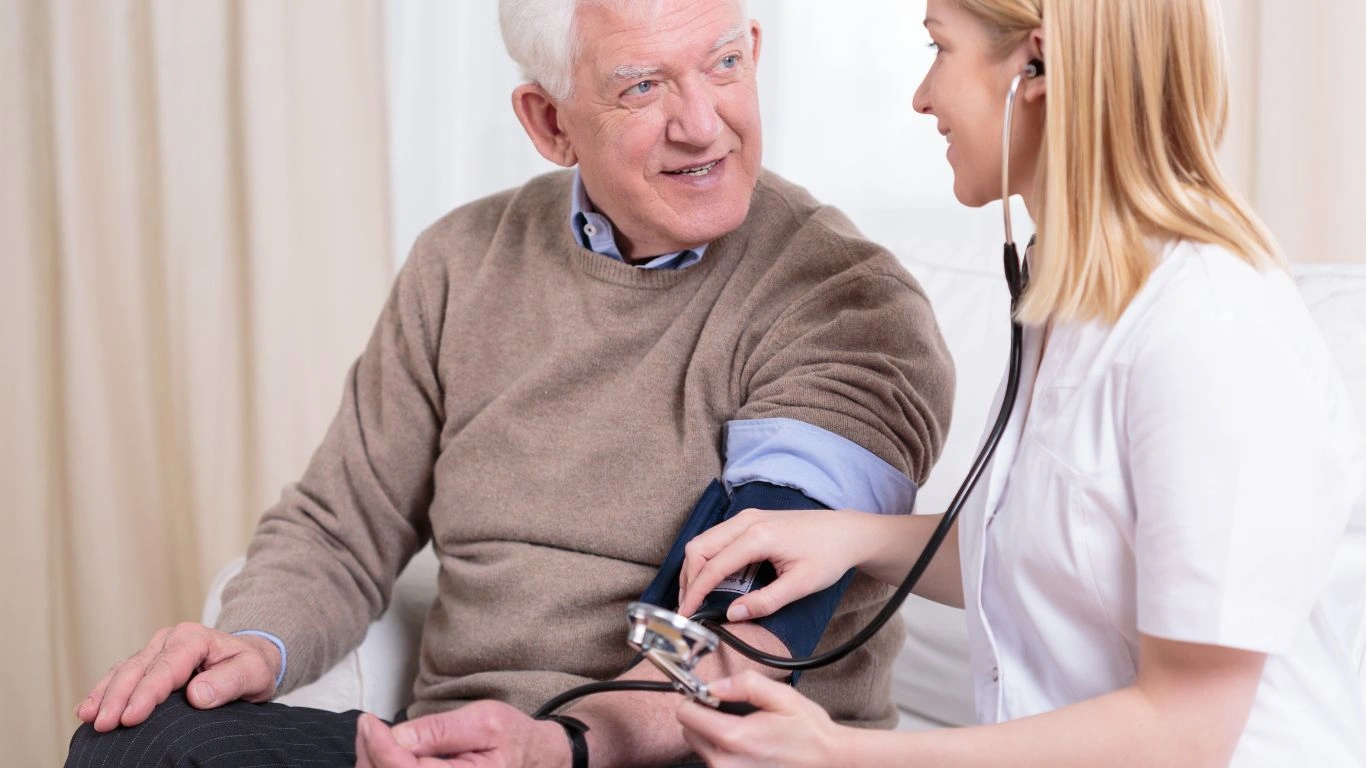
By the time many of my patients ask me if their screen time could be impacting their blood pressure, they’ve usually ruled out the usual suspects. They’re eating relatively well, getting some exercise, taking their meds. But their blood pressure is still creeping up, and they can’t figure out why. That’s when we dig deeper—and often, it leads us straight to their screens.
It’s easy to overlook because screen time doesn’t *feel* unhealthy in the moment. You’re not eating fried food or smoking a cigarette. But the chronic, cumulative effects of prolonged screen use? That’s where the real trouble brews. Sedentary behavior, emotional stress, overstimulation, sleep disruption—it all adds up. Over time, these habits can contribute to hypertension, even in people who seem otherwise low risk.
As a physician, I’ve learned to think of it this way: screen time isn’t inherently bad—but the behaviors it reinforces often are. That’s a subtle but important distinction.
Tracking the Clues: What Your Body Might Be Telling You
If you’re wondering whether your screen habits could be affecting your health, your body usually drops a few hints. And yes, they can be surprisingly subtle:
- Frequent headaches or neck tension after long hours at your desk or on your phone?
- Trouble falling asleep, or waking up still feeling exhausted?
- Mid-day energy crashes even when you’ve had a decent night’s sleep?
- Elevated blood pressure at appointments despite no obvious lifestyle triggers?
I’ve had patients who chalked these up to “just stress” or “getting older”—until we made screen time adjustments and suddenly, the fog started to lift.
Resetting the Relationship with Your Screens
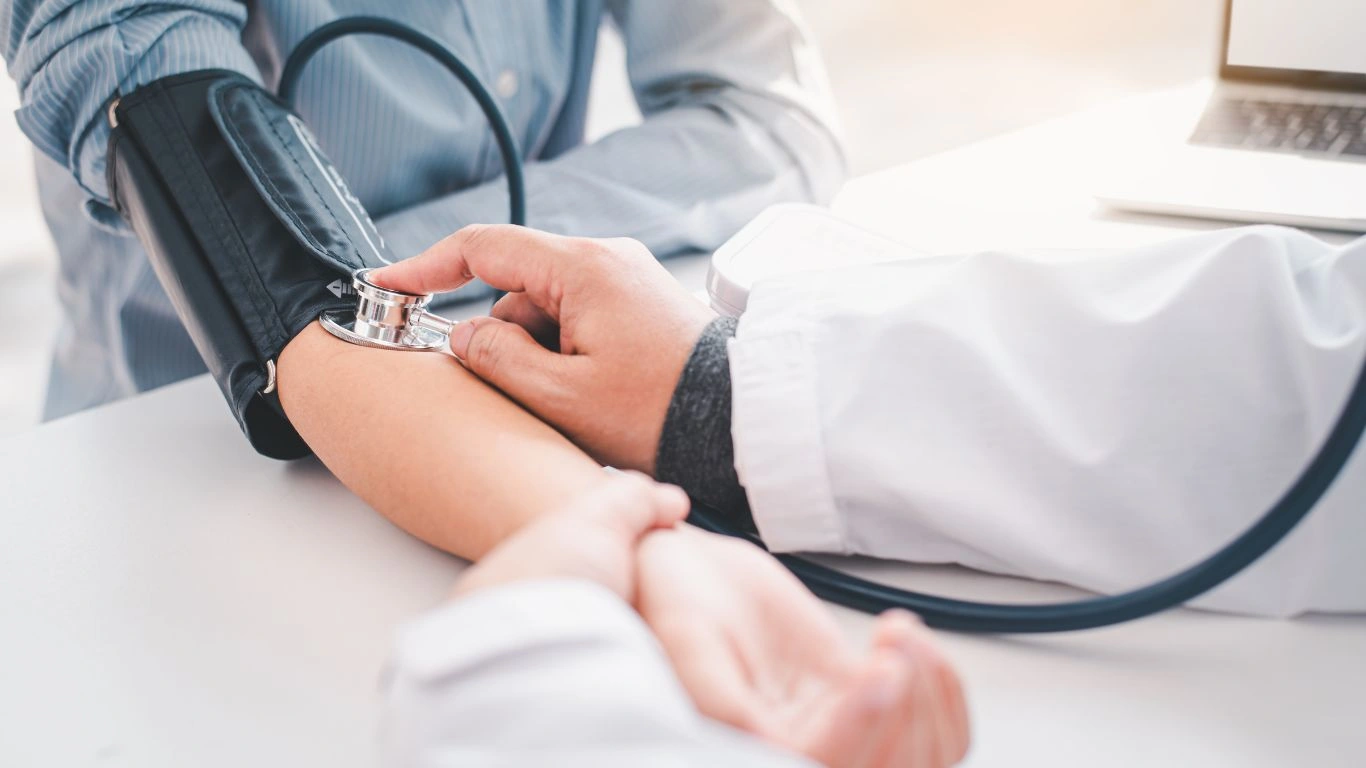
If you’re feeling a bit called out right now, don’t worry—you’re not alone. The good news is, you don’t need to toss your phone out the window or swear off Netflix forever. But a few smart changes can make a massive difference, not just for your blood pressure, but your overall well-being.
Try a Digital “Detox Lite”
This isn’t about a complete blackout (unless you want to go full monk mode). Instead, I recommend trying a light reset:
- Pick one screen-free block of time each day—maybe an hour in the morning or right before bed.
- Disable non-essential notifications. Trust me, most things aren’t that urgent.
- Move your most-used apps off your home screen so they’re less tempting.
- Use grayscale mode to make scrolling less stimulating and addictive.
I did this myself a few years ago and was shocked at how often I reflexively reached for my phone, even with nothing urgent to do. It’s eye-opening—and oddly freeing once you regain a bit of that control.
Invest in the Basics: Movement, Sleep, Connection
Sometimes we overthink things when the best solutions are still the simplest. If you’re cutting back on screens, fill that time with what your body and brain actually crave:
- Take a walk—even 10 minutes outside can reset your nervous system and lower stress hormones.
- Get to bed earlier without screen interruptions and let your blood pressure naturally dip overnight.
- Connect face-to-face—real conversations lower stress in a way no app can replicate.
I once had a patient with stage 2 hypertension who was borderline on needing a second medication. Instead, we tried a “tech-down” plan: no screens after 8 PM, added two 15-minute walks a day, and made dinner phone-free. Within two months, her numbers dropped by 10 points systolic. And her sleep? The best she’d had in years.
So… Can Screen Time Increase Blood Pressure?
At this point, you probably know my answer. Yes—not always directly, but very often through the lifestyle patterns it fuels. As a physician, I’ve seen firsthand how rethinking screen time can improve blood pressure, reduce anxiety, and give people back energy they didn’t even realize they were missing.
Let’s stop treating screen time like a harmless modern habit. It’s a piece of the bigger lifestyle puzzle—one that can either help or harm your health depending on how you engage with it. The key is awareness, boundaries, and balance. You don’t have to quit your tech—but you might want to stop letting it quietly raise your blood pressure one scroll at a time.
Where to Learn More
There’s still a lot of research unfolding about digital habits and cardiovascular health. If you’re curious to dig deeper, check out some of the ongoing studies and trusted resources from organizations like:
They frequently publish updates on screen time research, stress and cardiovascular health, and practical wellness tips.
Disclaimer
This article is for educational and informational purposes only and does not substitute for professional medical advice, diagnosis, or treatment. Always consult your physician or other qualified health provider with any questions you may have regarding a medical condition. As an Internal Medicine physician, my observations are based on clinical experience and general evidence—but individual cases may vary.

Dr. Gwenna Aazee is a board-certified Internal Medicine Physician with a special focus on hypertension management, chronic disease prevention, and patient education. With years of experience in both clinical practice and medical writing, she’s passionate about turning evidence-based medicine into accessible, actionable advice. Through her work at Healthusias.com, Dr. Aazee empowers readers to take charge of their health with confidence and clarity. Off the clock, she enjoys deep dives into nutrition research, long walks with her rescue pup, and simplifying medical jargon one article at a time.


